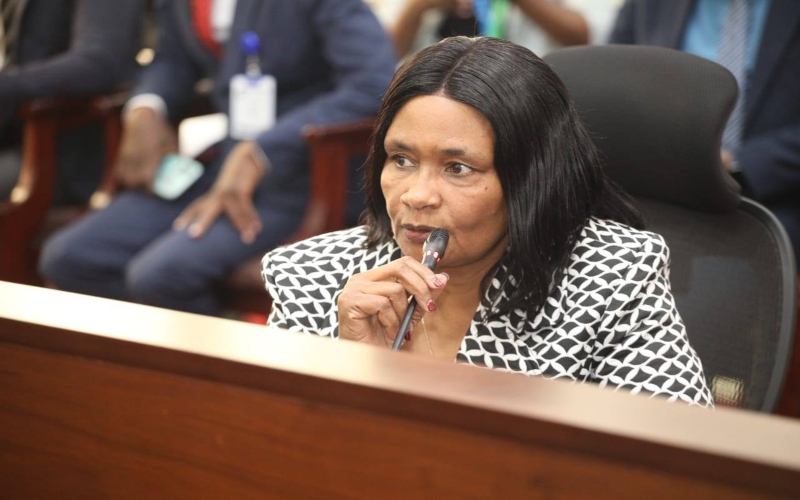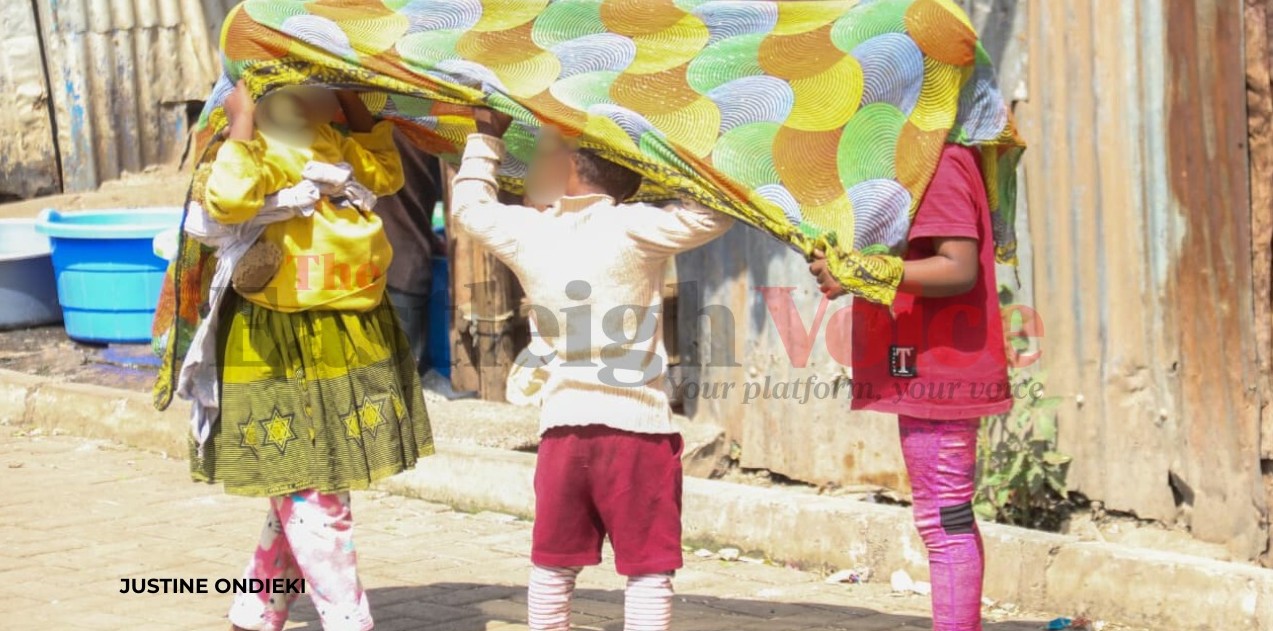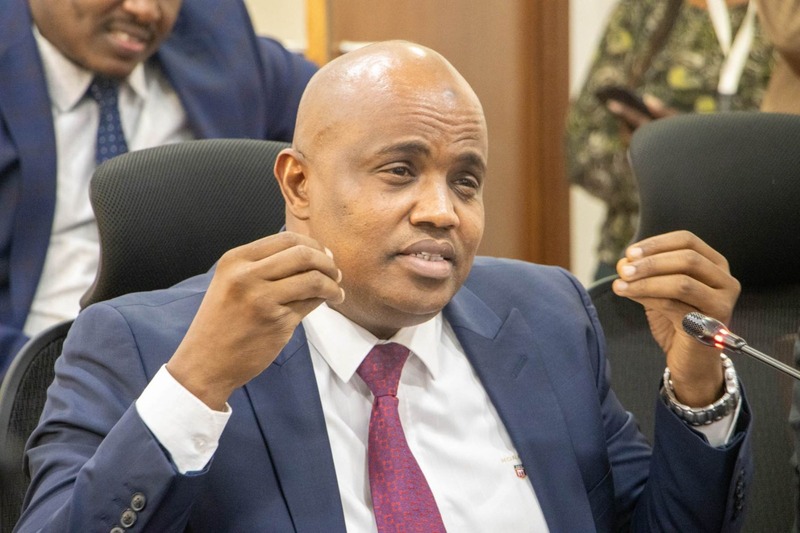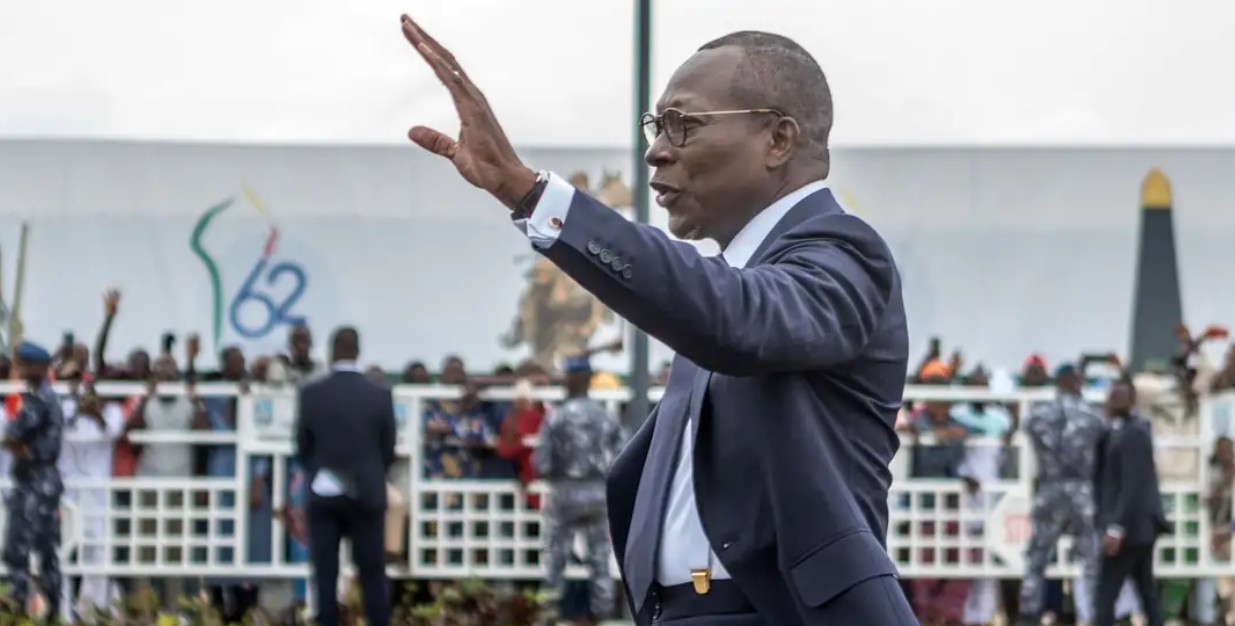Neglect hurts northern frontier's chances of proving its potential - Wajir South MP

The world today is looking at food security as the number one agenda yet we have neglected 80 per cent of this country agriculturally.
Wajir South MP Mohammed Adow believes the north eastern region deserves more attention from the government and policy developers than it receives currently. He spoke to The Eastleigh Voice on why the unequal distribution of national cake has hurt the northern frontier's chances of showcasing its potential.
Q: Leaders from the north eastern Kenya have decried the poor state of education in the region, from lack of teachers to the unavailability of infrastructure in schools. How is the situation now and are things getting better?
More To Read
- Kenya, UK celebrate success of Sh3.6 billion REINVENT security programme after seven years
- Wajir MCAs demand answers over rising abductions after two men vanish
- CS Kagwe announces policy overhaul for sugar, tea and miraa to protect farmers’ earnings
- Factory farming in Africa: Development banks see it as a good idea, but it’s bad for the climate
- AU calls for rapid tech adoption in farming to shield continent from food crises
- CS Kagwe urges bold reforms in agriculture sector as Intergovernmental Agriculture Forum opens in Naivasha
A: Education in the north eastern region is facing massive challenges. To begin with, because of the erratic climatic patterns, most residents move from one place to another and form new settlements. In my constituency, for example, almost every other month you will see new settlements coming up. These and other reasons have created a new appetite for educational infrastructure everywhere.
This has also made it difficult for us as leaders to apportion the little resources we have because we do not know whether to pay attention to the already existing schools or to start new schools in the new settlements.
Until 2011, there was very little investment in the northern frontier in terms of education. Devolved units too have also not been doing a good job in building early childhood education classrooms.
We have had a shortage of teachers because of insecurity. To bridge this gap, we as leaders gave scholarships to local teachers as a long-term measure to ensure that they are trained so that they get employed. We would like to ask the Teachers Service Commission (TSC) to employ the trained teachers. We believe that the teacher shortage problem in the north eastern will soon be a thing of the past.
Q: What is the state of teacher recruitment in the north eastern region?
A: The Teachers Service Commission is unfortunately not apportioning us the required number of teachers needed to fill the existing gap. We see some of the students we have used funds to sponsor seeking employment elsewhere after training because TSC is not employing them. This therefore works against our efforts.
For instance, Wajir South, with all its problems and vastness, is given only thirty opportunities at the time of recruitment. Those are very few. We have done our bit by training the teachers; it's TSC's turn to absorb them.
Q: Are resources in the hands of leaders from the region enough to address gaps in the education sector?
A: Unfortunately, we have so little. We are forced to work with what we have like the NG-CDF. In my constituency, the bursary allocation was Sh15 million when I assumed office, today it is Sh70 million. This means that we have to do away with other much-needed development in other sectors to focus on the issue of teacher shortage as our biggest percentage of allocation goes to teacher training.
Q: Recently in Parliament, you said that the solution to Kenya's food insecurity is agricultural investment in drylands. How is this possible?
A: What I mean is that dryland or arid and semi-arid lands form up to 80 per cent of the landmass in this country. However, the government has concentrated agriculture and food security policy in the 20 per cent left.
The 20 per cent consists of land that has been farmed for 100 years and can no longer be viable without massive inputs of fertilisers. It's time the Kenyan government started investing in drylands by first harvesting rainwater that goes to waste in the dryland region.
It is time we should start mega dams, not in the usual parts of the country that we see but in the dry parts like Mandera, Marsabit, Isiolo, Wajir and even Garissa so that we have availability of water for the people of northern Kenya who are have vast land that is arable.
The world today is looking at food security as the number one agenda yet we have neglected 80 per cent of this country agriculturally. In my constituency, with the help of well-wishers, we have dug several boreholes exclusively for agriculture. This has reduced dependence on agricultural food from other parts of the country.
Q: What is the state livestock programme where pastoralists are to benefit through buying off their animals for meat in the north eastern region?
A: We haven't seen such a programme recently. The pastoralists livestock offtake programme is not working. Livestock farmers have been left to their own means.
In this country you keep hearing about fertilisers on the floor of the House, you keep hearing about coffee and tea. You keep hearing about the subsidies they are being given. The huge amounts of money given to tea and coffee cooperatives but there is none for livestock, which is one of the biggest foreign exchange earners for the country.
We should ask ourselves how much investment goes to the hinterlands where livestock is reared by the pastoralists. It's almost zero.
Do we have camel experts in this country? We have none because it's an animal that does not have a lot of political capital.
Top Stories Today














































